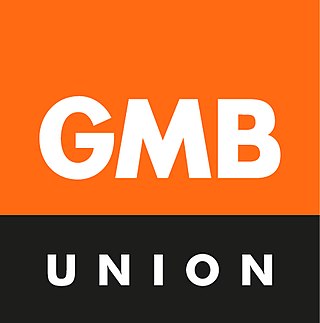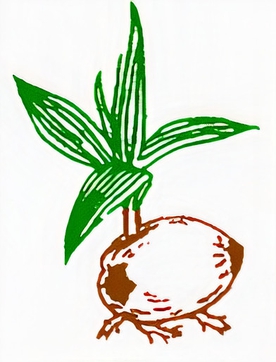Related Research Articles

Fiji has experienced many coups recently, in 1987, 2000, and 2006. Fiji has been suspended various times from the Commonwealth of Nations, a grouping of mostly former British colonies. It was readmitted to the Commonwealth in December 2001, following the parliamentary election held to restore democracy in September that year, and has been suspended again because of the 2006 coup, but has been readmitted a second time after the 2014 election. Other Pacific Island governments have generally been sympathetic to Fiji's internal political problems and have declined to take public positions.
A trade union or labor union, often simply referred to as a union, is an organisation of workers intent on "maintaining or improving the conditions of their employment", such as attaining better wages and benefits, improving working conditions, improving safety standards, establishing complaint procedures, developing rules governing status of employees and protecting and increasing the bargaining power of workers.
The New Zealand Labour Party, or simply Labour, is a centre-left political party in New Zealand. The party's platform programme describes its founding principle as democratic socialism, while observers describe Labour as social-democratic and pragmatic in practice. The party participates in the international Progressive Alliance. It is one of two major political parties in New Zealand, alongside its traditional rival, the National Party.

The GMB is a general trade union in the United Kingdom which has more than 460,000 members. Its members work in nearly all industrial sectors, in retail, security, schools, distribution, the utilities, social care, the National Health Service (NHS), ambulance service and local government.

The Communication Workers Union (CWU) is the main trade union in the United Kingdom for people working for telephone, cable, digital subscriber line (DSL) and postal delivery companies. It has 110,000 members in Royal Mail as well as more in many other communication companies.

Socialism in New Zealand had little traction in early colonial New Zealand but developed as a political movement around the beginning of the 20th century. Much of socialism's early growth was found in the labour movement.

The Fiji Labour Party, also known as Fiji Labour, is a political party in Fiji. Most of its support is from the Indo-Fijian community, although it is officially multiracial and its first leader was an indigenous Fijian, Dr. Timoci Bavadra. The party has been elected to power twice, with Timoci Bavadra and Mahendra Chaudhry becoming prime minister in 1987 and 1999 respectively. On both occasions, the resulting government was rapidly overthrown by a coup.

The Canadian Labour Congress, or CLC is a national trade union centre, the central labour body in Canada to which most Canadian labour unions are affiliated.
Trade Unions in India are registered and file annual returns under the Trade Union Act (1926). Statistics on Trade Unions are collected annually by the Labour Bureau of the Ministry of Labour, Government of India. As per the latest data, released for 2012, there were 16,154 trade unions which had a combined membership of 9.18 million. The Trade Union movement in India is largely divided along political lines and follows a pre-Independence pattern of overlapping interactions between political parties and unions. The net result of this type of system is debated as it has both advantages and disadvantages. According to the data submitted by various trade unions to the Ministry of Labour and Employment as part of a survey, INTUC with a combined membership of 33.3 million, has emerged as the largest trade union in India as of 2013.
The Australian labour movement began in the early 19th century and since the late 19th century has included industrial and political wings. Trade unions in Australia may be organised on the basis of craft unionism, general unionism, or industrial unionism. Almost all unions in Australia are affiliated with the Australian Council of Trade Unions (ACTU), many of which have undergone a significant process of amalgamations, especially in the late 1980s and early 1990s. The leadership and membership of unions hold and have at other times held a wide range of political views, including communist, socialist and right-wing views.
The Australian Workers' Union (AWU) is one of Australia's largest and oldest trade unions. It traces its origins to unions founded in the pastoral and mining industries in the late 1880s and it currently has approximately 80,000 members. It has exercised an outsized influence on the Australian Trade Union movement and on the Australian Labor Party throughout its history.

The Irish Transport and General Workers Union (ITGWU), was a trade union representing workers, initially mainly labourers, in Ireland.
Daniel Urai, also known as Daniel Urai Manufolau, is a Fijian trade unionist and former politician.
Felix M. Anthony is a Fiji Indian trade unionist and politician.
The Fiji Trades Union Congress (FTUC) is a trade union organisation in Fiji that was founded in 1952 under the leadership of Pandit Ami Chandra as the Fiji Industrial Workers Congress (FIWC). As the FIWC the organisation was the third federation in Oceania, after the Australian Council of Trade Unions and the New Zealand Council of Trade Unions, to join the International Confederation of Free Trade Unions. In 1975 the FTUC's membership was 25,000. The FTUC is affiliated to the International Trade Union Confederation. It has a close relationship with the Fiji Labour Party. The FTUC has 30 trade union affiliates, covering the public and private sectors. Major affiliates include: the Fiji Public Service Association, the Fiji Teachers Union, the Fiji Sugar & General Workers Union, the National Union of Hospitality, Catering & Tourism Industries Employees and the National Union of Factory and Commercial Workers Union.
A company or "yellow" union is a worker organization which is dominated or unduly influenced by an employer, and is therefore not an independent trade union. Company unions are contrary to international labour law. They were outlawed in the United States by the 1935 National Labor Relations Act §8(a)(2), due to their use as agents for interference with independent unions. However, company unions persist in many countries.
Attar Singh is a Fijian trade unionist of Indian descent. As of January 2007, he is the General Secretary of the Fiji Islands Council of Trade Unions (FICTU), one of two major umbrella bodies for trade unions in Fiji.
The Essential National Industries (Employment) Decree 2011 is a controversial decree issued by the military-led 'interim government' of the Republic of Fiji in September 2011. It was followed a few days later by the Essential National Industries and Designated Corporations Regulations 2011.

The Trades Union Congress (TUC) is a national trade union centre, a federation of trade unions in England and Wales, representing the majority of trade unions. There are 48 affiliated unions, with a total of about 5.5 million members. Frances O'Grady became General Secretary in 2013 and presented her resignation in 2022, with Paul Nowak becoming the next General Secretary in January 2023.
The People's Democratic Party was a political party in Fiji.
References
- ↑ ICTUR; et al., eds. (2005). Trade Unions of the World (6th ed.). London, UK: John Harper Publishing. ISBN 0-9543811-5-7.
- ↑ "Fifteen unions have broken away from the Fiji Trade Union Congress". Radio New Zealand International. 25 August 2002. Retrieved 2007-07-12.
- ↑ "Fiji's biggest trade unions come together".